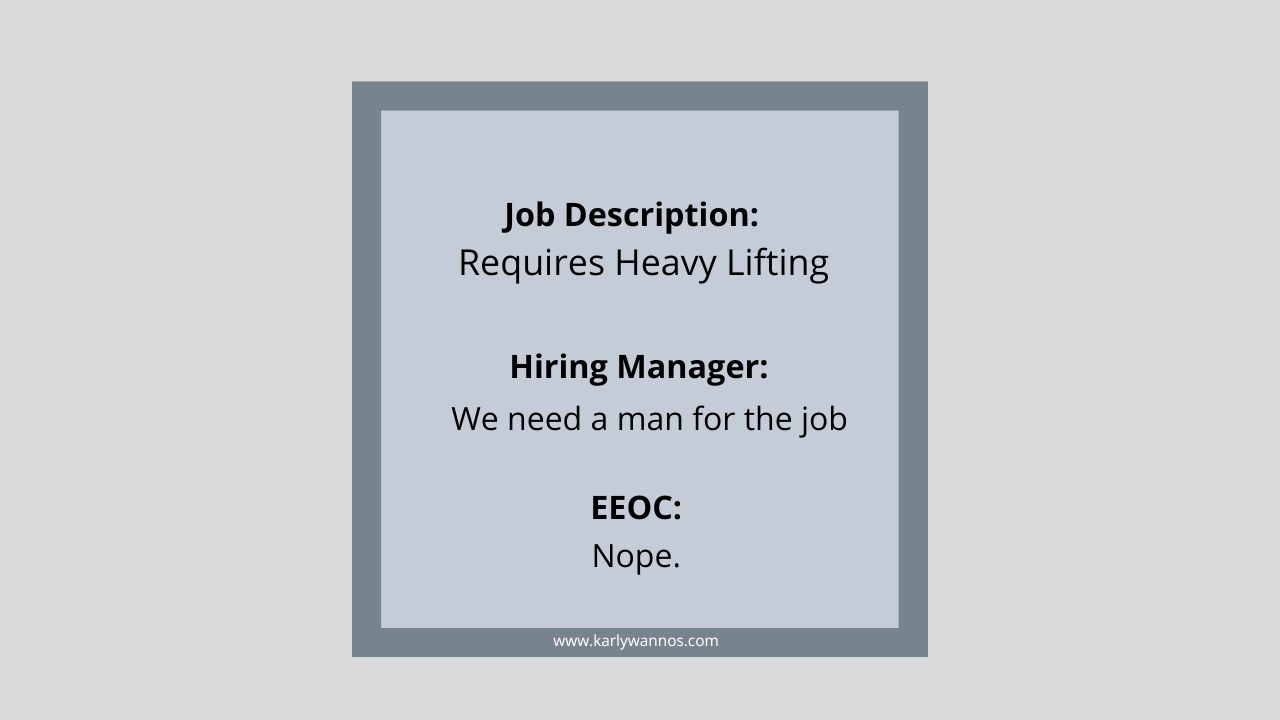Hiring Men Only Due to Heavy Lifting Requirements
Sep 14, 2022
The US Equal Employment Opportunity Commission thinks otherwise.
Recently, the EEOC filed a lawsuit against an Ohio based company, Satellite AutoGlass (a vehicle glass repair and replacement company), alleging it violated the law when it refused to hire a qualified applicant because she is a woman. The woman applicant had 2 years of experience as a repair technician as well as experience lifting and moving heavy furniture.
Even through the applicant disclosed her work experience during the interview, the store manager was concerned she could not lift the heavy weight of the glass and suggested another position. The other position paid less. The company hired two male applicants with the same qualifications as the female applicant.
The lawsuit is currently pending the US District Court for the Western District of Texas.
This should be common knowledge, but unfortunately it is not. Employers cannot make hiring (or promotion or other workplace) decisions based on gender. This is illegal. This includes refusing to hire female employees because of an unfounded concern they aren’t physically “strong enough,” or because it’s a male dominated industry, or because the foul language used on the job site isn’t for women. This is particularly a concern in “male dominated” industries such as construction, mechanics, sports, etc.
Hiring decisions should be based on qualifications, education, prior job history, experience and the applicant’s actual ability to perform the job. Anything else could be illegal- especially if it falls within a protected class.
.
Follow Karly on Facebook, Instagram and Linkedin
Join our Private Facebook Community for HR and Businesses
Sign up for my Newsletter on employment law and management topics here.
Get the Newsletter
Stay Up To Date on employment law, management and leadership!
We do NOT spam, and we do not sell any information.
